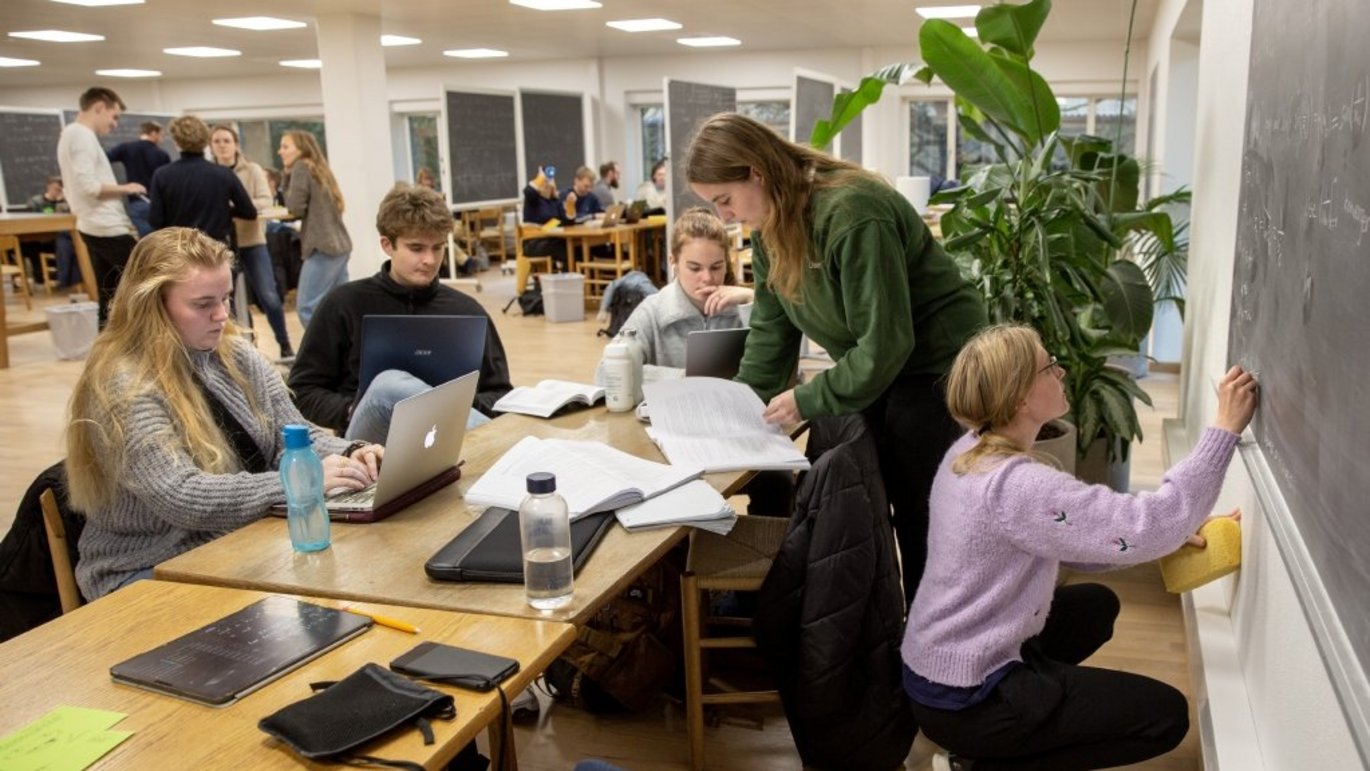Strong relational competencies create stronger collaborative communities between students
The students’ relationship is a significant factor when it comes to their academic outcome and well-being. One way to strengthen the academic and social integration in the programme is to work on the students’ relational competencies.



Relational competencies refer to the abilities and skills needed to establish and maintain relationships with other people. These competencies include the ability to communicate effectively, collaborate, and conflict management.
Good relational competencies increase active participation
“New students can sometimes be very preoccupied with how their peers perceive them. They can be afraid to appear unintelligent, uninformed, or disruptive, which limits their participation in the teaching,” postdoc Laura Cordes Felby says. Among other things, she does research on students’ first year at the university.
One way to deal with this issue is to enable all students in the study groups to actively participate. Thus, it will become clear to them that they all need one another to solve the assignments. The teacher can help ensure this by organising and facilitating group work in such a way that it allows all students to contribute as active participants.
“The teacher can facilitate collaboration in the groups by ensuring that everyone participates and contributes to the group’s work," Laura Cordes Felby says.
For example, you can get everyone in the group involved by asking them to read different texts or do different assignments that all shed light on one issue. The aim is that the students’ individual parts will contribute to a larger whole – like a jigsaw they piece together.
“Of course, it is crucial to avoid that some students feel left behind in connection with the group work. We need to pay attention to those who need extra support or encouragement in order to be included in the collaborative community,” educational consultant at the CED Simon Jensby adds.
The new role of the teacher
As the forms of teaching move towards a more student-collaborative practice, the role of the teacher has changed into a more facilitating role. This transition can be challenging because it places new demands. It calls for a teacher who feels confident in the relational and dialogical process.
“When forming groups and initiating group work, the teacher is a key factor in helping the students integrate into the group. One way in which the teacher can do this is by taking responsibility for the establishment of the groups and by making it clear why they need to work in groups in the first place – in other words, what the purpose of the group work is," Laura Cordes Felby says.
In addition, the teacher can also integrate the academic content of the course when working with the students' relations, for example, by taking the students’ everyday lives and interests into account when they plan the teaching.
“By focusing on relational competencies, we can create stronger and more inclusive collaborative communities in our teaching environments. Through this work, we can support our students’ academic development and at the same time create an environment where they feel confident, seen, and valued," Simon Jensby concludes.
Read more about relational competencies:
- Ravn, Ib (2023). Den faciliterende underviser. Copenhagen: Hans Reitzels Forlag
- Ulstrup, E. (2021). Brudflader i universitetets læringsrum: En undersøgelse af forholdet mellem didaktiske intentioner og studerendes deltagelse i kursusundervisning. Roskilde University
- Madelung, Birgitte (2022).Pædagogisk kompetenceudvikling på de videregående uddannelser. Frydenlund
